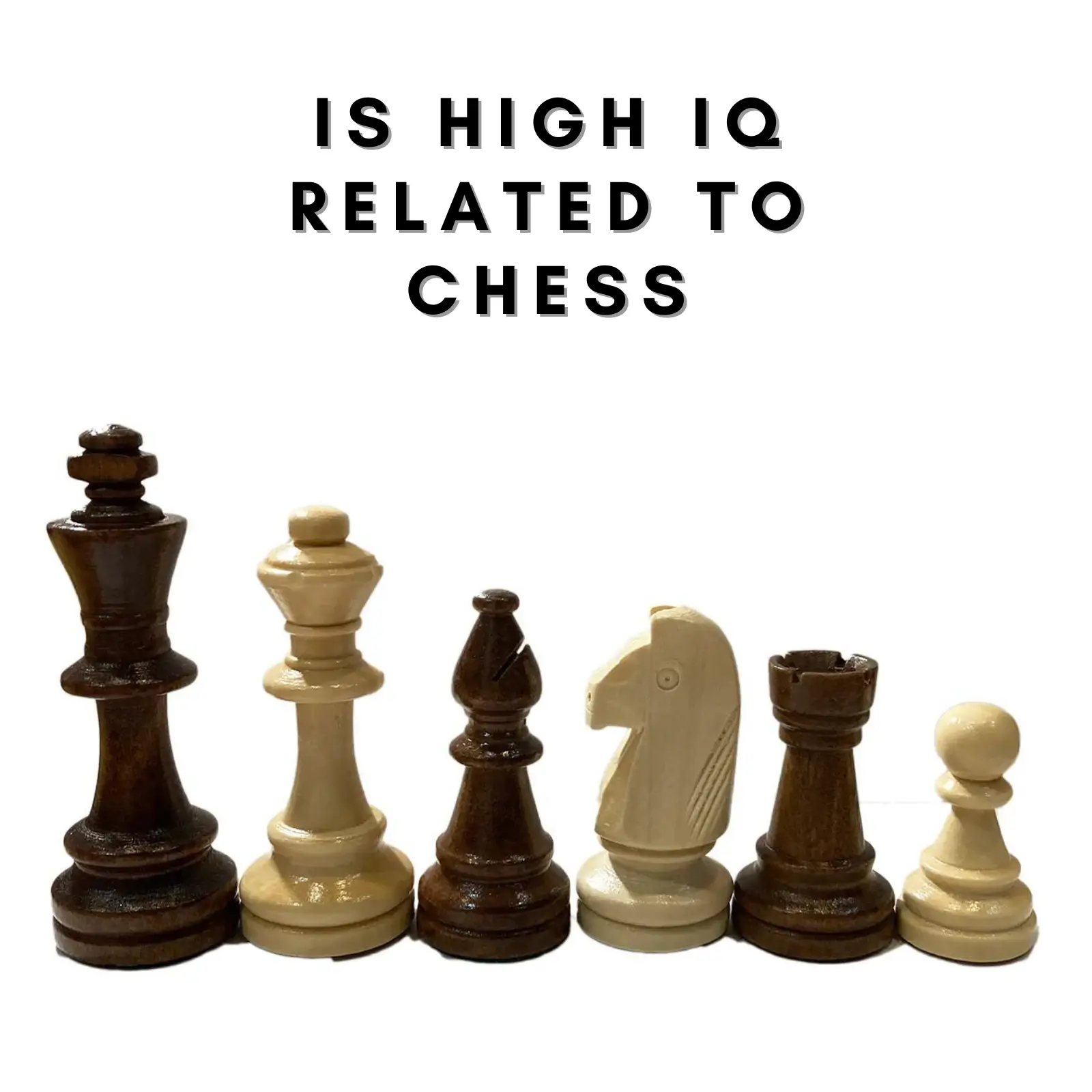
Is High IQ Related to Chess
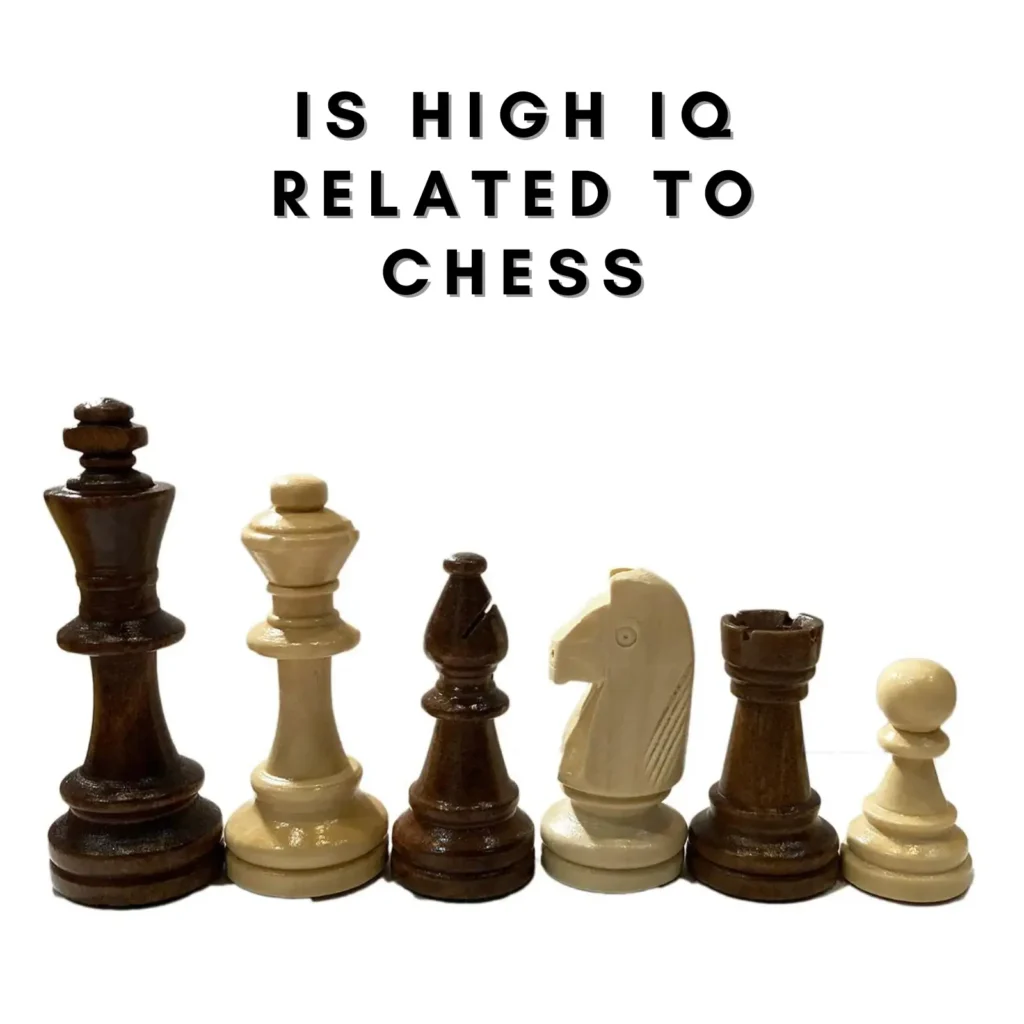
Many wonder what the relationship between IQ and chess ability is. You would be hard pressed to find a chess grandmaster that people would consider “slow”. Most people cant answer the simple question of “Is High IQ Related to chess?”
But how much of chess is IQ? How much of it is just practice and what are the factors that come into play when comparing great players across different eras?
We have wondered that ourselves and searching online for studies and comments on the subject it has remained a popular topic for years. So now we are going to try and answer the age of question of: Is High IQ Related to chess? Keep reading to find out more.
What is IQ
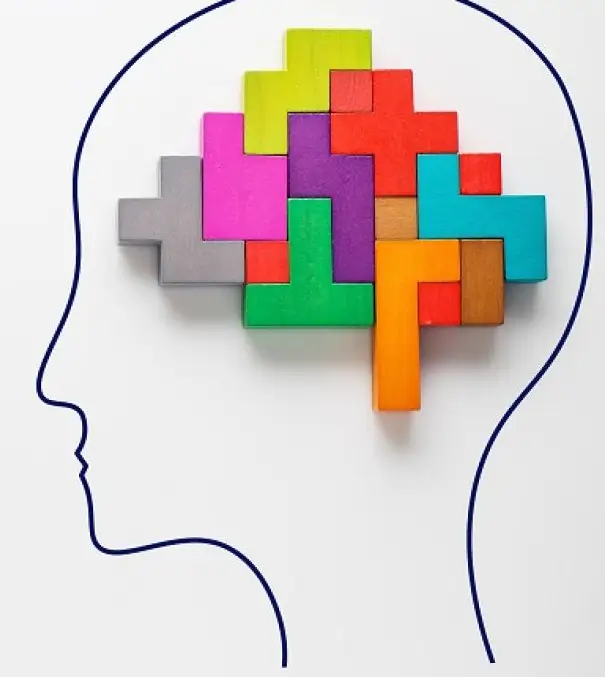
Just so we’re on the same page, we wanted to define what IQ really is.
Intelligence Quotient (IQ) is a score derived from a set of standard tests (IQ Tests) that measure a person’s intelligence. The modern way to measure someone’s IQ is for them to perform multiple IQ tests which will give them a score, this score will 2 times out of 3 be between 85 and 115, with less than 2.5% scoring less than 70 or more than 130.
| Score | Classification |
|---|---|
| 130 and more | Genius |
| 110-120 | Above Average |
| 90-110 | Average |
| 80-90 | Below Average |
| 70 or less | Intellectual Disability |
| Accomplishments | Score |
|---|---|
| MDs, JDs, and PhDs | 125 |
| College graduates | 115 |
| High school graduates | 100 |
| Semi-skilled workers | 90 |
While IQ tests have been studied and used for public policy for more than a century now, its results aren’t perfect, there are concerns that it’s not a reliable test of human intelligence given the abstract nature of the entire concept of “intelligence”. But it’s definitely the best measure we’ve got so it’s the one we are going to use going forward.
Are People with High IQ Good at Chess
This question is not as easy to answer as you might think, while common sense would tell us that the smarter player will win, that’s not always the case, there are other factors that can come into play.
So, to answer this question we have to draw from the history of competitive chess, modern studies on the relationship between both and some good old anecdotal evidence to reach a conclusion.
The History of Competitive Chess
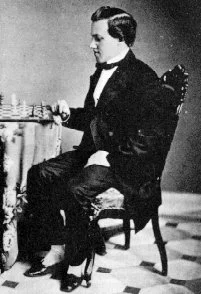
Before chess was widely known as a game of skill, or something that you could get better at with practice. It was common for people to group chess with games like poker and blackjack.
This meant that a lot of people back then (we’re talking early 18th and late 19th century) would not consider it worthy of devoting your life to the game, it also was not a professional sport like it is now, so even if you wanted to you had to be rich to spend so much time playing instead of working.
Still there were strong players that no one could beat, one example might be Paul Morphy (1837-1884) born in New Orleans to a rich family. He was a chess prodigy from an early age, becoming his city’s strongest player as a young kid.
With a lot of free time on his hands, he started playing a lot of chess. In just a couple of years he toured Europe where he faced the strongest players in the world, and was quickly recognized as the strongest player in the world at age 20.
Paul eventually started played most games with a handicap, he was years ahead of everyone else. Even the strongest players in the world could barely challenge him.
He didn’t study the game at all but intuitively played in a way that most would consider “modern”. He wouldn’t be the first player to feel this way.
While Paul Morphy was the first player to feel like there was not enough competition, he wouldn’t be the last to feel like this. He was definitely a genius but there were also other factors like him being rich and having plenty of time to spend playing chess that might have contributed to his ability.
The Relationship between IQ and chess ability
According to a recent study led by Michigan State University: Intelligence and not only fierce practice plays a significant role in determining chess skill.
The evidence presented in this study suggests that cognitive ability is linked to skilled performance, refuting theories that expertise is based on training alone.
Training and Practice are very big parts of anything we do, but this study suggests there is a limit to how much we can improve according to our IQ.
The researchers analyzed nearly 2300 scholarly articles about chess skill, they specifically looked for studies that included IQ numbers and Elo ratings. In the end they studied almost 1800 participants.
It was found that this effect was more pronounced in the younger players and those at the lowers levels of skill. It might be that when two players of equal skill play, the smarter one will win.
“Imagine that a genius can become a skilled chess player relatively easily, whereas a person with average intelligence may take longer. So, the idea is, as you practice more and develop more skills and knowledge about the game, you may be able to circumvent limitations in cognitive ability.”
With this in mind, we can conclude that having a high IQ helps a lot in chess, but it’s not the only factor.
Does Chess Require High IQ
Like we talked about earlier, while having a high IQ is definitely a requirement to be a world champion, it’s not required to become an expert chess player.
Most chess players will tell you that with enough practice and dedication you can get good enough to beat the regular people you meet every day. You won’t be winning any tournaments, but you can definitely be the strongest player in your family or in a random house party sometime soon!
It might take longer than a genius but in the right environment and with a lot of love for the game you can improve tremendously.
Don’t overthink it, your IQ doesn’t have to define what you can do.
Average IQ of a Grandmaster
While you might find plenty of clickbait articles saying that Kasparov had an IQ of 180 or that Fischer had an IQ of 190. The reality is different, most of the time those articles have no sources so we can’t really verify them.
Most serious studies will report a more sensible 120-140 average for most grand master level players.
One example Garry Kasparov’s IQ right score of 135 was discovered during a legal test performed by the German magazine Der Spiegel in 1997.
The confusion probably comes from the way IQ was calculated earlier on, the older IQ was more about ability/chronological Age than modern IQ which is much closer to modern statistical models.
This means that a 180 score in 1960 might be what we would now consider a 130 or 140 score today.
While this means that most GMs today don’t really all have insane 180 IQs, they most likely are in the range of 125-140 IQ, which is the highest 2% of the entire world’s population.
Conclusion
While it might be tempting to believe that with enough effort anyone could become a chess grand master, the reality is not as pretty.
We did a small section on Paul Morphy because I believe he was the first Chess genius, he was widely reported as a very smart young man with photographic memory. But even with all his gifts he also had specific circumstances that enabled him to practice chess for hours on end.
He never had to work to support his lifestyle so he could spend a lot of time just playing, he could easily travel and play with the strongest players of the time. Eventually thought he became “bored” with chess and stopped playing.
There might have been multiple potential world champion chess players all over the world who didn’t have the time or the resources to dedicate to chess as much as he did.
On the other hand, most studies do report a significant relation between high IQ and strong chess skills, with most masters and grandmasters being between one and three standard deviations from what we consider to be average intelligence.
I believe that chess skill is a mix of different things, you need to be reasonably smart to succeed, you need strong memory and spatial awareness. But you also need time, to practice, and resources to keep you going while you spend all your time practicing.
But above all, you need to love the game, you can’t pretend to spend thousands of hours devoted to a game you don’t like, just for bragging rights.
Related
- Is Chess Just Memorization
- At What Age Do You Stop Getting Better at Chess
- What Should A Chess Beginner Learn First
References
You may also like
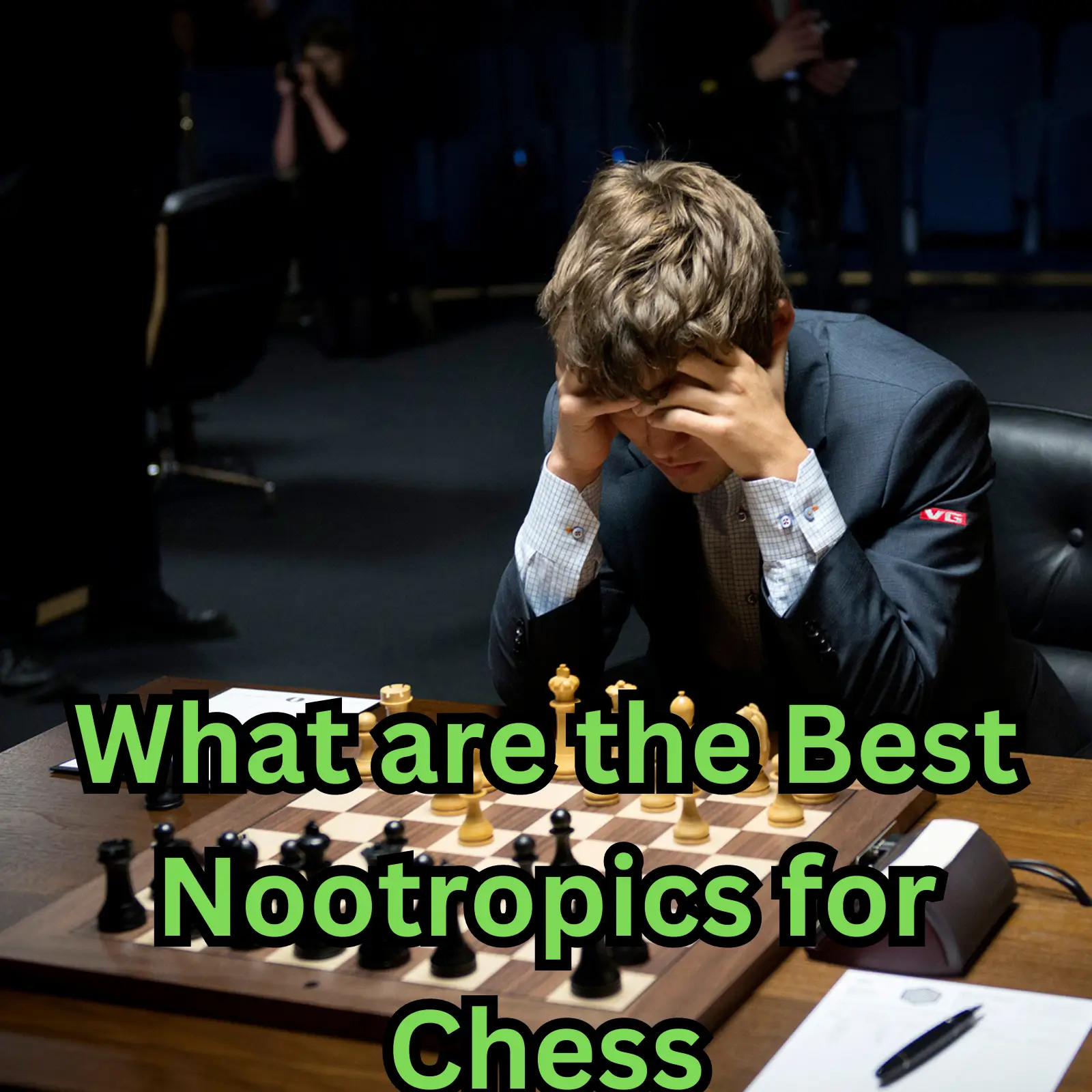
What are the Best Nootropics for Chess
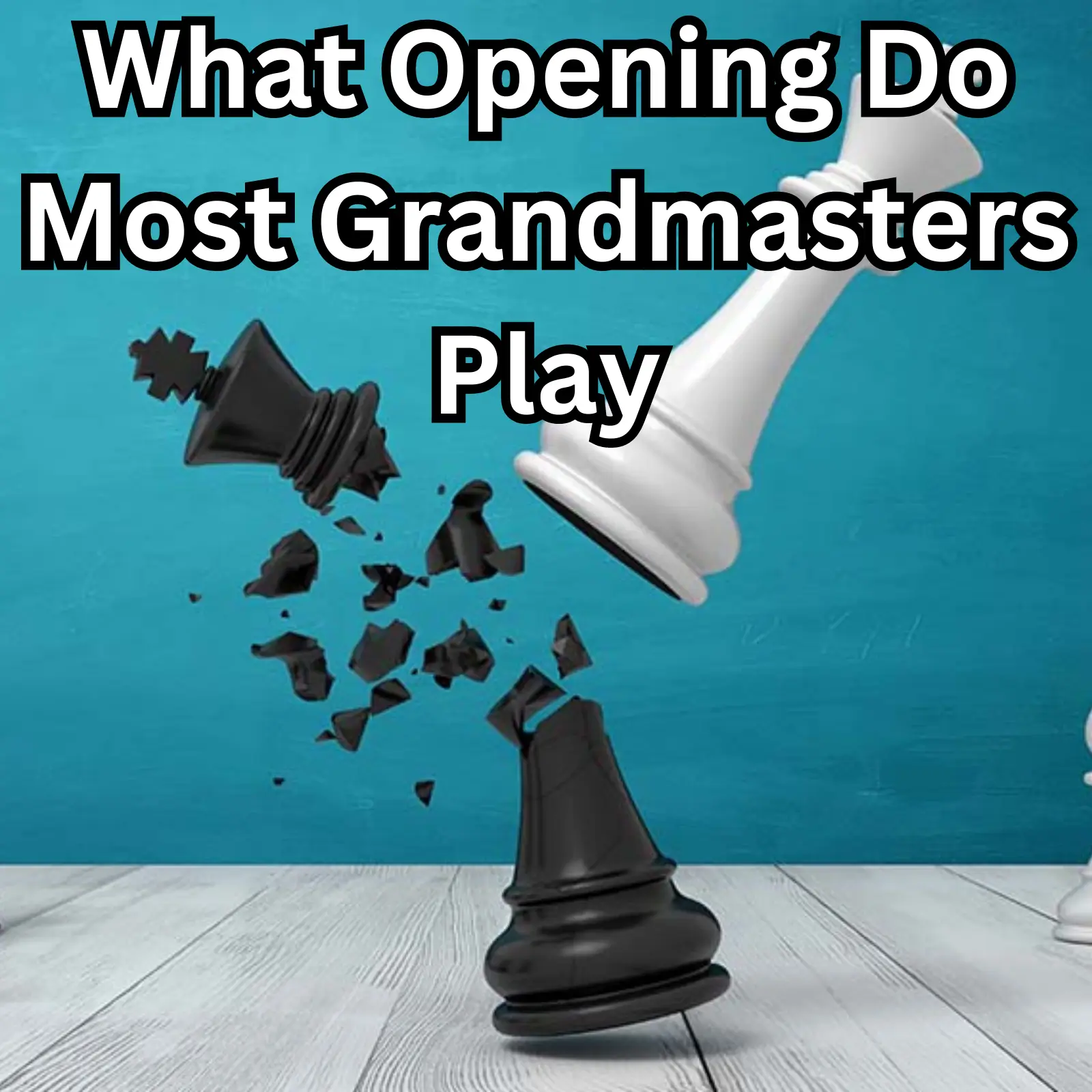
What Opening Do Most Grandmasters Play
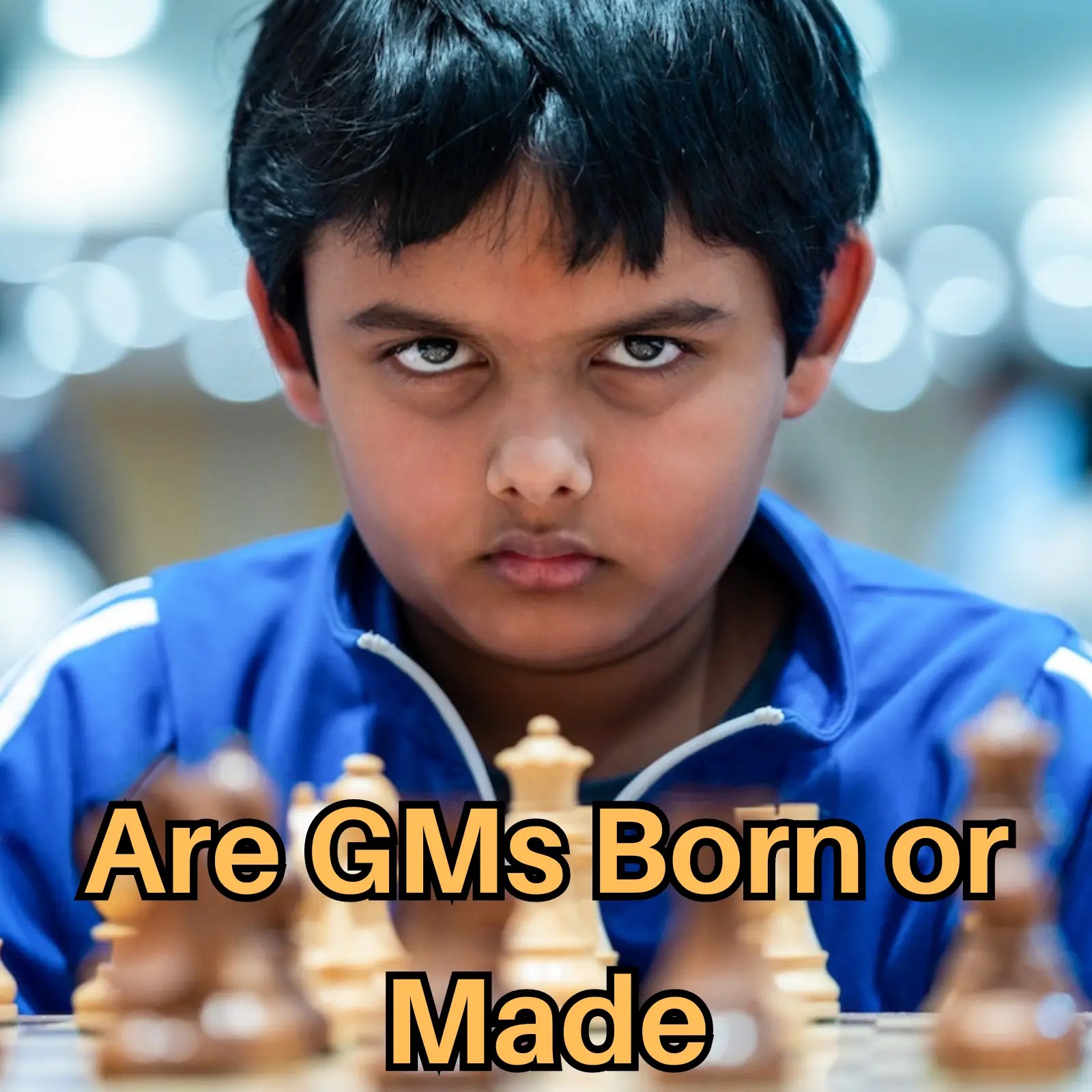
Are Grandmasters Born or Made
Archives
- February 2026
- January 2026
- December 2025
- November 2025
- October 2025
- September 2025
- August 2025
- July 2025
- June 2025
- May 2025
- April 2025
- March 2025
- January 2024
- October 2023
- September 2023
- August 2023
- July 2023
- June 2023
- May 2023
- April 2023
- March 2023
- February 2023
- January 2023
- December 2022
- November 2022
- October 2022
- September 2022
- August 2022
- June 2022
- May 2022
- April 2022
- March 2022
- January 2022
- December 2021
- November 2021
- October 2021
- August 2021
- November 2020
- July 2020
- May 2020
- April 2020
- March 2020
- August 2018
- July 2018
- June 2018
- April 2018
- March 2018
Categories
- Aftercare Procedures
- Age Groups
- AI/ML
- Alternative Medicine
- Ambient Computing
- Animal Health
- Animal Husbandry
- Animals
- Anti-Aging
- Architectural Design
- Art And Technology
- Auditory Science
- Augmented Reality
- Automation
- Babies
- Baby
- Beauty & Skincare
- Beauty Industry
- Biohacking
- Biomechanics
- Book Reviews
- Breastfeeding
- Budgeting
- Budgeting Strategies
- Business
- Cardiovascular Health
- Career Advice
- Career Development
- Career Growth
- Cats
- Chess
- Chronobeauty
- Circular Economy
- Civic Technology
- Cleaning Tips
- Cloud Computing
- Cognitive Health
- Cognitive Performance
- Cognitive Science
- Community
- Community Building
- Community Engagement
- Community Living
- Computer Vision
- Consumer Guides
- Consumer Trends
- Container Gardening
- Content Analysis
- Content Non-Technical
- Content Strategy
- Cooking Techniques
- Cosmetic Chemistry
- Cultural Events
- Cycling
- Data Analysis
- Data Engineering
- Data Science
- Database
- Design Psychology
- Design Trends
- Developer Productivity
- Diet
- Diet
- Diet And Nutrition
- Digital Identity
- Digital Media
- Digital Wellbeing
- DIY
- DIY Projects
- Dogs
- Engineering Culture
- Entertainment News
- Environmental Impact
- Environmental Science
- Equity Compensation
- Ethical AI
- Exercise
- Exercise Science
- Exercise Technique
- Exotic Pets
- Fall Gardening
- Family
- Family Health
- Family Life
- Fashion Business
- Fashion Industry
- Fashion News
- Fashion Tech
- Financial Analysis
- Financial Optimization
- Financial Planning
- Flooring Maintenance
- Food
- Food Psychology
- Food Safety
- Food Science
- Food Tech
- Functional Fitness
- Functional Training
- Future Of Work
- Garden Care
- Garden Maintenance
- Gardening Tips
- Geospatial Data
- Gig Economy
- Greece
- Greek
- Greek Food
- Green Technology
- Gymnastics
- Hardware Engineering
- Health
- Health And Wellness
- Health Informatics
- Health Science
- Health Tech
- Health Technology
- Healthcare
- Healthcare Management
- Healthy Eating
- Healthy Recipes
- Holistic Health
- Holistic Wellness
- Home & Living
- Home Decor
- Home Financing
- Home Health
- Home Improvement
- Home Maintenance
- Home Organization
- Home Styling
- Horticulture
- Household Chemistry
- Identity Management
- Indoor Gardening
- Industrial Design
- Industry Analysis
- Infant Nutrition
- Infrastructure Management
- Ingredient Deep Dive
- Integrative Health
- Integrative Medicine
- Interior Design
- Internet of Things
- Internet of Things (IoT)
- Invalid Request
- Investment Strategies
- Investment Strategy
- IoT
- Kids
- Leadership Development
- Learning Strategies
- Lifestyle
- Lifestyle Brands
- Lifestyle News
- Lifestyle Optimization
- Literary Criticism
- Literature
- Logistics Management
- Material Science
- Materials Science
- Meal Planning
- Media Analysis
- Meditation
- Mental Health
- Mental Performance
- Mental Wellness
- Miami
- Miami Food
- Mind And Body
- Minimalism
- Mobile Development
- Neuroscience
- No Applicable Categories
- Nursing
- Nutrition
- Nutrition News
- Open Source
- Operating Systems
- Operational Resilience
- Opinion
- Organization Tips
- Outdoor Living
- Over 40
- Over 50
- Over 60
- Parenting
- Parenting
- Parenting Strategies
- Performance
- Performance Optimization
- Personal Development
- Personal Finance
- Personal Growth
- Personal Productivity
- Pet Care
- Pet Safety
- Philosophy
- Plant Care
- Politics
- Product Formulation
- Productivity
- Productivity Engineering
- Protein
- Psychology
- Psychology of Space
- Quantified Self
- Reading Culture
- Real Estate Investment
- Recipes
- Regulatory Compliance
- Remote Work
- Renovation Planning
- Resource Management
- Respiratory Health
- Responsible Pet Ownership
- Retail Strategy
- Retail Technology
- Robotics
- Science
- Seafood
- Seasonal Gardening
- Security
- Sedentary Health
- Self-Care
- Skincare Science
- Skincare Trends
- Sleep
- Sleep Health
- Smart Home
- Smoothies
- Social Impact
- Soft Skills
- Soil Health
- Spatial Computing
- Spatial Design
- Stress Management
- Supplements
- Sustainability
- Sustainability Science
- Sustainable Engineering
- Sustainable Fashion
- Systems Engineering
- Tax Optimization
- Tax Strategy
- Tech Investment
- Technical Writing
- Testing
- Travel
- Travel News
- Travel Safety
- Travel Tips
- Trend Analysis
- Tropical Plants
- Uncategorized
- Urban Gardening
- Urban Planning
- User Experience
- Veggie
- Vietnam
- Virtual Events
- Volunteering
- Wealth Management
- Wearable Technology
- Wellness
- Wellness Technology
- Winter Gardening
- Work-Life Balance
- Workplace Culture
- Workspace Setup
- World
- Writing
- Writing Skills
- Year In Review
- Yoga
- Yoga News
- Zero Waste

Leave a Reply